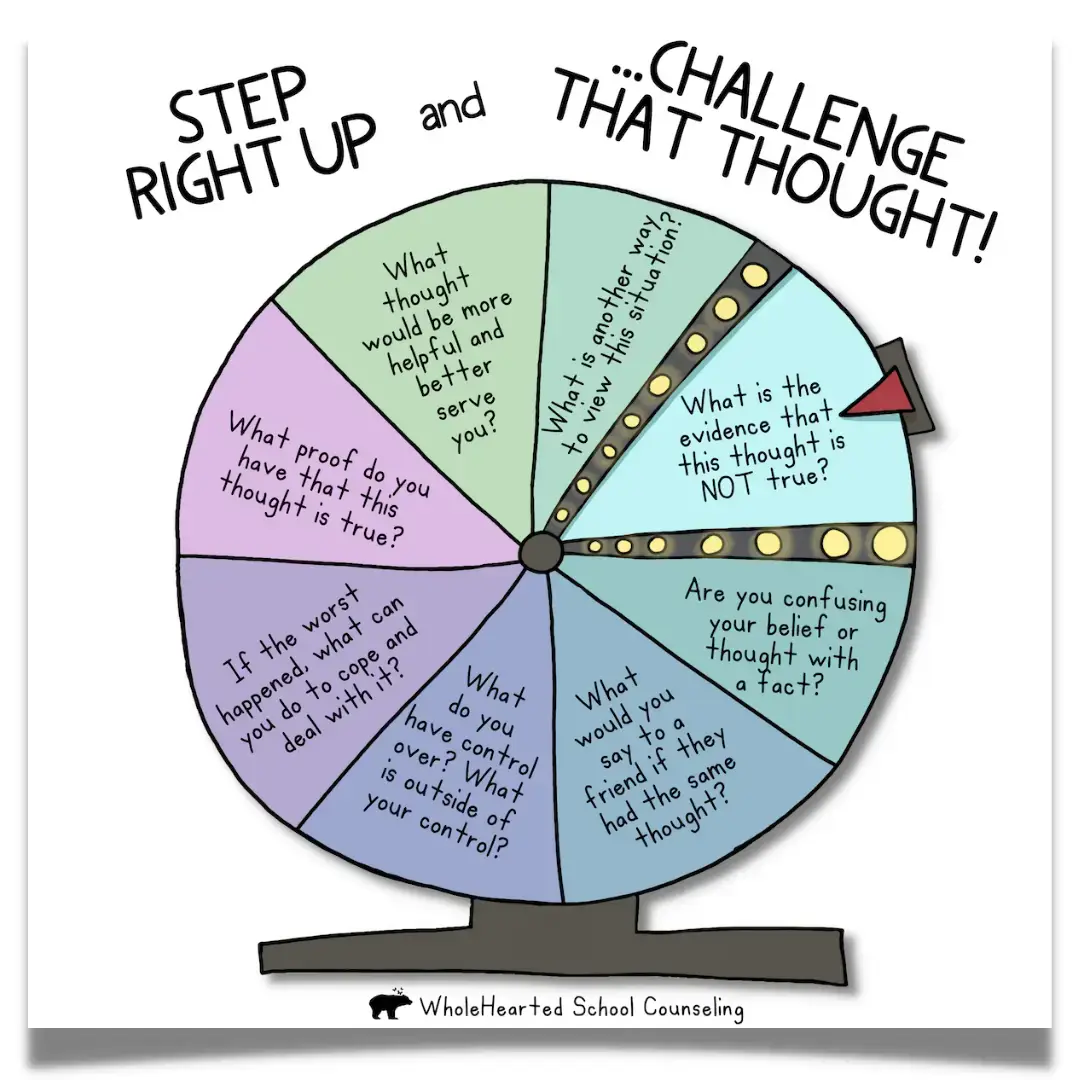Why connecting with a therapist for teens near me is important for youth
Exactly How Teenager Treatment Can Empower Young Minds and Promote Development
Teen therapy plays a crucial duty in forming the mental well-being of adolescents. It resolves the distinct difficulties they face, promoting psychological understanding and durability. By discovering different therapeutic methods, young people can develop essential coping methods. This procedure not only aids in personal development yet additionally enhances their capacity to navigate partnerships. Recognizing the characteristics of this healing trip reveals deeper understandings right into just how it can fundamentally modify their course toward the adult years.
Understanding the Relevance of Mental Health And Wellness in Teenagers
Why is psychological wellness essential for young adults during their developmental years? This period is noted by fast physical, psychological, and cognitive modifications. Adolescents commonly navigate facility social characteristics, scholastic pressures, and the pursuit for identification, making mental wellness a crucial element of their overall health. Healthy and balanced mindsets allow teenagers to develop resilience, cultivate self-esteem, and manage stress and anxiety successfully. Furthermore, attending to psychological health problems early can stop lasting mental issues, making it possible for adolescents to grow academically and socially.
Recognizing psychological wellness in teenagers entails recognizing the special challenges they face. Understanding and assistance can promote open communication, permitting young people to express their sensations and seek help when needed. By focusing on mental wellness, society can empower teenagers to develop coping techniques, form healthy and balanced connections, and attain their full capacity. Inevitably, nurturing psychological wellness throughout these formative years lays the foundation for a balanced, fulfilling the adult years.
Usual Challenges Faced by Teenagers
Teens commonly encounter numerous difficulties that can significantly impact their psychological health. Emotional policy battles, peer pressure characteristics, and scholastic stress and anxiety monitoring prevail concerns that shape their experiences. Attending to these obstacles is crucial for promoting strength and empowerment in young adults.
Emotional Law Struggles
Several young adults run into substantial psychological guideline struggles as they browse the intricacies of adolescence. This developing phase is noted by fluctuating emotions, commonly resulting in trouble handling feelings such as stress and anxiety, temper, and sadness. Youthful individuals might find themselves overwhelmed by their emotional reactions, resulting in impulsive actions or withdrawal. Aspects such as hormone changes, social stress, and scholastic difficulties worsen these struggles. Several teenagers do not have the coping approaches essential to share their feelings appropriately, which can lead to problems in connections and prevent individual growth. Furthermore, feelings of seclusion might arise, as they frequently believe their experiences are unique. Identifying and attending to these psychological law concerns with therapy can empower teenagers to create healthier coping systems and foster strength.
Peer Pressure Characteristics
Browsing the psychological turbulence of adolescence frequently brings young adults in person with peer pressure characteristics. This powerful impact can significantly form their choices, actions, and self-image. Teenagers may really feel forced to comply with their peers' assumptions, bring about high-risk habits, such as compound use or harmful relationships. The desire for approval and anxiety of rejection magnify these stress, typically resulting in interior problem. Teenagers might struggle to insist their individuality, being afraid backlash from their peer teams. Therapy can give a risk-free space for young people to discover these dynamics, enabling them to create approaches for standing up to negative impacts (counselling for teens). Via empowerment and self-awareness, teens can learn to browse peer stress extra properly, promoting durability and promoting healthier decision-making

Academic Stress Monitoring
Just how do scholastic stress influence the health of young adults? For several teens, the search of high qualities and college readiness usually leads to overwhelming anxiety. This anxiety materializes in various ways, consisting of anxiety, clinical depression, and physical health and wellness concerns. The worry of failure and the relentless competitors can produce a poisonous atmosphere that prevents social and emotional development. Furthermore, unrealistic assumptions from parents and instructors can intensify sensations of insufficiency. Teenagers might struggle to stabilize academics with extracurricular activities, even more intensifying their stress and anxiety degrees. Efficient scholastic stress management approaches, such as time administration, relaxation techniques, and seeking support, come to be essential. By dealing with these obstacles, therapy can encourage teens to establish healthier coping systems, cultivating resilience and promoting general well-being.
The Role of Treatment in Adolescent Development
As adolescents change via the intricacies of teen years, treatment arises as a crucial support group, cultivating emotional strength and personal development. Throughout this developmental duration, young adults grapple with identification, peer stress, and psychological upheaval. Therapy offers a safe room for them to discover their sensations, thoughts, and habits without judgment. This exploration enhances their self-awareness, allowing them to understand their feelings and reactions a lot more deeply.
Therapy assists teens develop coping techniques to manage stress and anxiety, necessary skills that will benefit them throughout life (teenage counselling near me). By taking part in healing discussions, teenagers learn to articulate their needs and establish healthier partnerships. This procedure not only advertises private growth yet likewise contributes to much better interaction and problem resolution skills. Eventually, treatment acts as an essential tool in assisting teens toward positive development, encouraging them to navigate the obstacles of teenage years with confidence and strength
Strategies Utilized in Teenager Therapy
In teen treatment, different techniques are utilized to cultivate empowerment and individual growth. Cognitive Behavioral Techniques focus on improving negative thought patterns, while Expressive Arts Treatments encourage self-discovery investigate this site through imaginative expression. With each other, these techniques offer teenagers with important tools to navigate their psychological and emotional difficulties.
Cognitive Behavioral Techniques
Cognitive Behavior Techniques (CBT) play a vital function in teen treatment, especially as they resolve the special obstacles encountered throughout adolescence. These techniques concentrate on identifying and modifying unfavorable thought patterns that add to psychological distress and behavior concerns. By urging teenagers to recognize irrational beliefs and change them with constructive thoughts, CBT cultivates strength and coping approaches. Specialists usually utilize tools such as thought documents, behavioral experiments, and direct exposure tasks to help teens challenge their fears and develop healthier responses. In addition, CBT highlights goal-setting, which empowers teens to take possession of their progression. This structured method not just alleviates signs and symptoms of anxiety and anxiety but likewise equips young people with skills more helpful hints to navigate life's obstacles better.
Meaningful Arts Therapies
While conventional talk therapies might not reverberate with every teen, Expressive Arts Treatments provide an alternate approach that utilizes creativity as a way of self-expression and recovery. This technique integrates different art kinds, including paint, dance, songs, and drama, permitting teenagers to interact feelings and experiences that may be tough to articulate vocally. Participating in these imaginative processes can promote self-discovery, increase confidence, and assist in psychological handling. The non-judgmental setting of expressive arts allows teens to explore their identities and deal with obstacles in a helpful setup. By integrating expressive arts into treatment, experts can provide an alternative method that not just addresses emotional struggles yet likewise empowers young minds to grow and grow.
Structure Resilience Via Therapeutic Practices
As teens browse the complexities of their developing years, constructing resilience with therapeutic methods ends up being vital for their emotional health. Reliable restorative approaches, such as cognitive-behavioral treatment and mindfulness strategies, encourage teenagers to challenge obstacles and establish coping approaches. By discovering to determine and manage their feelings, young people can grow a better sense of self-efficacy.

Taking part in treatment permits adolescents to discover their ideas and sensations in a risk-free atmosphere, advertising versatility despite adversity. This procedure encourages them to see obstacles as chances for growth rather than overwhelming obstacles. Team therapy setups additionally boost durability by promoting social connections and providing peer assistance, reinforcing the idea that they are not alone in their battles.
Ultimately, healing techniques function as vital devices, outfitting young adults with the abilities required to browse life's hurdles and arise more powerful and a lot more resistant in their journey towards the adult years.
The Long-Term Benefits of Engaging in Therapy
Engaging in therapy throughout adolescence can generate considerable long-term advantages that extend well right into the adult years. By attending to psychological and emotional obstacles early, teens can establish much healthier coping mechanisms that linger throughout their lives. Treatment fosters self-awareness, equipping young additional hints people to comprehend their feelings and thoughts much better, which can cause enhanced decision-making abilities.
In addition, consistent therapeutic involvement can improve interpersonal relationships. Teenagers typically learn effective communication and conflict-resolution methods, which can strengthen links with peers, family, and future colleagues. This structure of psychological intelligence frequently results in increased resilience against anxiety and adversity.
In addition, individuals who join treatment throughout their formative years might experience minimized risks of psychological health and wellness problems later in life. Ultimately, very early healing treatment equips young adults with necessary devices for browsing life's intricacies, promoting both individual development and overall health as they change into adulthood.
Frequently Asked Inquiries

Exactly How Can Parents Support Their Teens Throughout Treatment Procedure?
Moms and dads can support their teenagers during treatment sessions by actively listening, appreciating their privacy, encouraging open interaction, and verifying their sensations. They ought to also continue to be individual and understanding as their teenagers navigate the therapeutic procedure.
What Should a Young adult Anticipate in Their Initial Therapy Appointment?
In their very first treatment visit, a teenager can anticipate an introductory discussion, reviewing their issues and sensations. The therapist will create a secure environment, develop objectives, and describe privacy to cultivate trust and visibility.
Exist Age Limits for Teenagers Seeking Treatment?
There are normally no rigorous age restrictions for teenagers seeking therapy; nonetheless, services might vary by service provider - therapist for teens near me. The majority of specialists take into consideration clients aged 13 to 19, while younger children may call for parental participation or different resources
How Can Teenagers Find a Specialist They Get in touch with?
Teenagers can locate a therapist by looking for referrals from trusted grownups, investigating on-line directory sites, or making use of institution resources. Structure connection via initial assessments helps guarantee a comfortable link, crucial for effective therapy and personal growth.
Is Online Therapy Reliable for Young Adults?

Online therapy can be reliable for teenagers, offering adaptability and accessibility. Numerous young people value the comfort of virtual sessions, which can boost visibility and facilitate interaction, inevitably adding to their psychological well-being and individual growth.
Young adult treatment plays a crucial function in shaping the psychological wellness of teenagers. In teen therapy, various strategies are utilized to promote empowerment and individual growth. Cognitive Behavior Methods (CBT) play a vital role in young adult therapy, specifically as they attend to the distinct challenges faced during adolescence. While typical talk therapies might not resonate with every young adult, Expressive Arts Treatments use an alternative method that takes advantage of imagination as a way of self-expression and recovery. Efficient therapeutic methods, such as cognitive-behavioral treatment and mindfulness techniques, encourage teens to challenge challenges and create coping approaches.